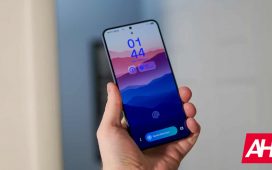Many companies are investing heavily in headsets and smart glasses. However, Meta is expected to take the cake. According to a recent report from the Financial Times, Meta could end up investing as much as $100 billion in VR and smart glasses this year.
Betting big
Based on Meta’s latest annual report, the company revealed that it had invested $19.9 billion in its Reality Labs division last year. For those unfamiliar, that is a unit within Meta that helped to develop the Ray-Ban Meta smart glasses and Quest VR headsets. The amount suggests that Meta is extremely committed to making it work.
So far, Meta’s investment has kind of paid off. The company has reportedly sold over 1 million units of the Ray-Ban smart glasses. This suggests that as novel as the tech might be right now, there is quite a high demand for it. Granted, 1 million units pales in comparison to the amount of smartphones sold. But for a piece of relatively new tech that’s still trying to find its place in the world, it’s impressive.
This success suggests that Meta could be looking to develop devices that could one day replace smartphones and computers. It also suggests that Meta could be looking beyond its existing products and services as another potential source of revenue. It could be a long road because, according to the numbers, Reality Labs only managed to bring in $2.1 billion in revenue in 2024. This is compared to its operating losses of $17.7 billion, which is up by 10% from the previous year.
This means that the unit is far from close to recovering the $10 billion investment Meta made into it to develop VR and smart glasses technology.
Meta is currently developing at least three new smart glasses models. This includes an upgraded version of the Ray-Ban glasses which come with a built-in display. Reports suggest that Meta is also developing a separate pair of Oakley-branded smart glasses designed for athletes.
The future is XR
Meta isn’t the only company investing in VR and smart glasses devices. Apple, Google, and Samsung are all developing their own products in this space. Samsung and Google have partnered to develop the Android XR platform and Samsung XR devices.
Apple launched the Vision Pro at the beginning of last year. Reports suggested that the firm was developing smart glasses that could eventually replace the iPhone. However, the latest rumors indicate that the project is dead.
That being said, the jury is still out on whether XR has the potential to change the smartphone and computer landscape. There are still a lot of limitations on these devices right now, but as far as Meta is concerned, the company seems to believe this could be the next big thing.











